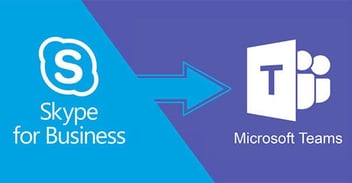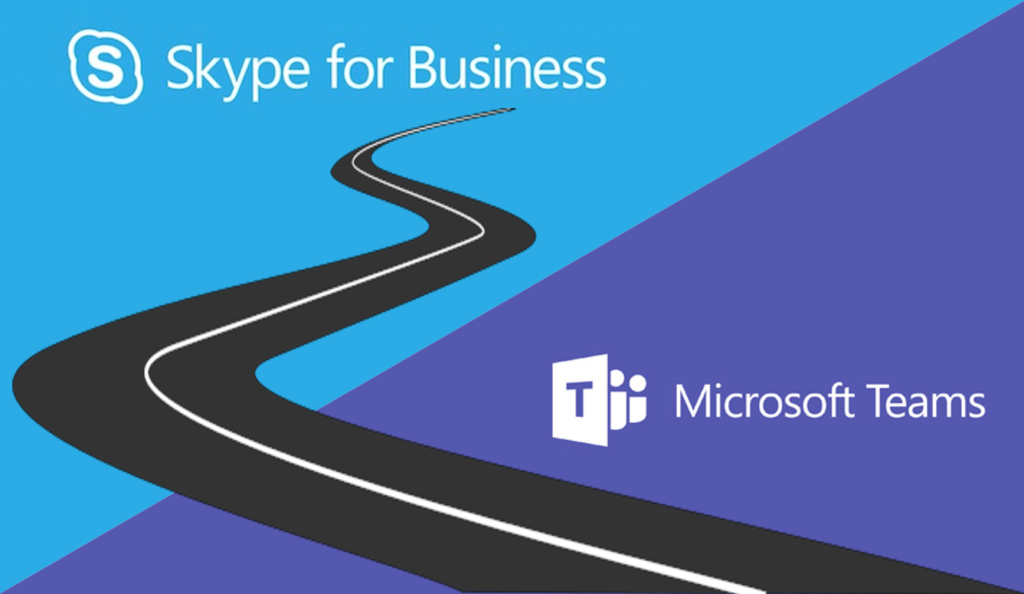By: Sarah Goltz, Content Manager on July 5th, 2021
The time is here! Skype for Business is ending at the end of this month. Let us make your transition as easy as possible.
When is Skype for business ending?
Skype for business is ending on July 31, 2021. For the next few weeks, it will continue running to allow customers time to transition to Microsoft Teams, but immediately following July 31st, the platform will no longer be supported by Microsoft. After acquiring Skype for business, Microsoft began working on a more comprehensive communication option which became what it is known by today, Microsoft Teams. Are you ready for the transition? To help you out with the process, we have put together some tips to make the transition as seamless as possible.
What is Microsoft Teams?
Microsoft Teams is one pane of glass for all your needs. It includes the actual meeting, a calendar to schedule meetings with attendees, and a chat to communicate with your members before and after the meeting. This makes Teams a much more complex system than Skype for Business. There are hundreds of apps that can integrate with Teams allowing it to be a very versatile platform. You can also save all your files into Teams so that you have one place for document management & collaboration. You no longer need to search through hundreds of emails for a conversation. All your private and group team conversations are saved right on a single platform.
A Seamless Transition to Microsoft Teams
Communicating and collaborating through an application has become a necessity for many businesses, especially during the pandemic and high volume of remote working. Microsoft Teams specifically, began to surge with the number of users that joined. For companies that already have Microsoft 365 for Business, Teams is already integrated into that system, so you have access to it immediately. When moving away from Skype for Business and adopting Teams, your device must have the necessary updates and strong connectivity to make sure it is a seamless transition.
Once the Teams application is installed, it is important to note that unlike Skype for Business, Teams is a one-stop shop for all your communication and collaboration needs, which means for some it may be a slight learning curve. Teams could spark a change in the dependence on email or in-person meetings. This may seem like a large adjustment in the beginning, but it will save you time and create a more efficient workflow in the long run. Those who did not previously have Skype for Business will only have the option to get Microsoft Teams through Microsoft 365.
A 3-step action plan to ensure a successful migration.
- The future success of a company's visions and initiatives tends to start from the C-level and project down. For this reason, it is important to gain executive buy-in and highlight the value of Microsoft Teams.
- Promote the first users of teams to turn on Teams-only mode to experience streamlined communication and collaboration.
- Have Teams users encourage other users in your business. Have them share wins and best practices with the rest of the organization.
With Skype for Business quickly coming up to the end of its life, it is important to prepare for the future of your business to ensure a successful transition. When choosing your new workplace collaboration and communication platform, having a functional interface for all your users is essential. Microsoft Teams has worked tirelessly to create a seamless application that will enrich your company's ability to work together and effortlessly communicate.
For any questions about Microsoft Teams and the new integration, visit us here or call 800.724.2119.
Read On

Windows 10 End-of-life 2025: What It Means For Your Business
In fall 2025, Microsoft Windows 10 will officially become end-of-life. This means the manufacturer...

Skype For Business Ending on July 31, 2021. What’s your next move?
Out with the old and in with the new! This upcoming July will be the end of Skype for Business....

Is Your Fax System End-of-Life? It May be in 2025
If you use a traditional analog faxing system, you should know that these will soon become outdated...



